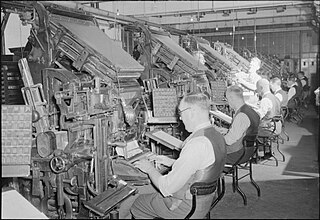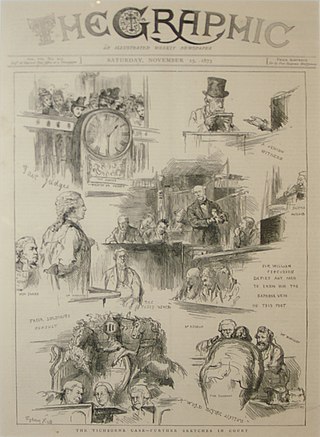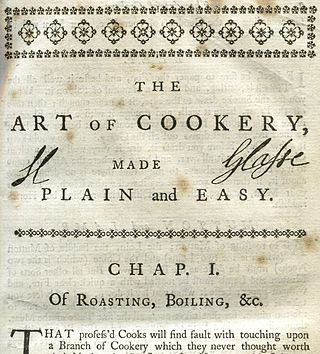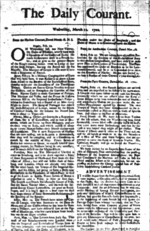
The history of British newspapers dates to the 17th century with the emergence of regular publications covering news and gossip. The relaxation of government censorship in the late 17th century led to a rise in publications, which in turn led to an increase in regulation throughout the 18th century. The Times began publication in 1785 and became the leading newspaper of the early 19th century, before the lifting of taxes on newspapers and technological innovations led to a boom in newspaper publishing in the late 19th century. Mass education and increasing affluence led to new papers such as the Daily Mail emerging at the end of the 19th century, aimed at lower middle-class readers.

Dame Julie Andrews is an English actress, singer, and author. One of the last surviving leading actresses from the Golden Age of Hollywood, she has garnered numerous accolades throughout her career spanning over seven decades, including an Academy Award, a BAFTA Award, two Emmy Awards, three Grammy Awards and six Golden Globe Awards as well as nominations for three Tony Awards. She has been honoured with an Honorary Golden Lion, the Kennedy Center Honors in 2001, the Screen Actors Guild Life Achievement Award in 2007, and the AFI Life Achievement Award in 2022. She was made a dame (DBE) by Queen Elizabeth II in 2000.

Isabella Mary Beeton, known as Mrs Beeton, was an English journalist, editor and writer. Her name is particularly associated with her first book, the 1861 work Mrs Beeton's Book of Household Management. She was born in London and, after schooling in Islington, north London, and Heidelberg, Germany, she married Samuel Orchart Beeton, an ambitious publisher and magazine editor.

The Graphic was a British weekly illustrated newspaper, first published on 4 December 1869 by William Luson Thomas's company Illustrated Newspapers Ltd. Thomas's brother Lewis Samuel Thomas was a co-founder. The premature death of the latter in 1872 "as one of the founders of this newspaper, [and who] took an active interest in its management" left a marked gap in the early history of the publication. It was set up as a rival to the popular Illustrated London News.

Katharine Elizabeth Whitehorn was a British journalist, columnist, author and radio presenter. She was the first woman to have a column in The Observer, which ran from 1963 to 1996 and from 2011 to 2017. She was the first female rector of a university in Scotland. Her books include Cooking in a Bedsitter (1961).

Hannah Glasse was an English cookery writer of the 18th century. Her first cookery book, The Art of Cookery Made Plain and Easy, published in 1747, became the best-selling recipe book that century. It was reprinted within its first year of publication, appeared in 20 editions in the 18th century, and continued to be published until well into the 19th century. She later wrote The Servants' Directory (1760) and The Compleat Confectioner, which was probably published in 1760; neither book was as commercially successful as her first.

The modern newspaper is a European invention. The oldest direct handwritten news sheets circulated widely in Venice as early as 1566. These weekly news sheets were full of information on wars and politics in Italy and Europe. The first printed newspapers were published weekly in Germany from 1609. Typically, they were heavily censored by the government and reported only foreign news and current prices. After the English government relaxed censorship in 1695, newspapers flourished in London and a few other cities including Boston and Philadelphia. By the 1830s, high-speed presses could print thousands of papers cheaply, allowing low daily costs.
The Edinburgh Courant was a broadsheet newspaper from the 18th century. It was published out of Edinburgh, Midlothian, Scotland. Its first issue was dated February 14–19, 1705 and was sold for a penny. It was Scotland's first regional newspaper and it was produced twice weekly for five years, thereafter continuing as the Scots Courant until April 1720.
Events from the year 1702 in England. This year sees a change of monarch.

Elizabeth Mallet was an English printer and bookseller who produced Britain's first daily newspaper, The Daily Courant.

Sir Edward Hulton, 1st Baronet was a British newspaper proprietor and thoroughbred racehorse owner.

Winston Churchill, in addition to his careers of soldier and politician, was a prolific writer under the pen name 'Winston S. Churchill'. After being commissioned into the 4th Queen's Own Hussars in 1895, Churchill gained permission to observe the Cuban War of Independence, and sent war reports to The Daily Graphic. He continued his war journalism in British India, at the Siege of Malakand, then in the Sudan during the Mahdist War and in southern Africa during the Second Boer War.

A newspaper is a periodical publication containing written information about current events and is often typed in black ink with a white or gray background.

Elizabeth Raffald was an English author, innovator and entrepreneur.

The Burney Collection consists of over 1,270 17th-18th century newspapers and other news materials, gathered by Charles Burney, most notable for the 18th-century London newspapers. The original collection, totalling almost 1 million pages, is held by the British Library.

Kate Williams is a British historian, author, and television presenter. She is a professor of public engagement with history at the University of Reading.
The Manchester Courier was a daily newspaper founded in Manchester, England, by Thomas Sowler; the first edition was published on 1 January 1825. Alaric Alexander Watts was the paper's first editor, but remained in the position for only a year.
The history of journalism in the United Kingdom includes the gathering and transmitting of news, spans the growth of technology and trade, marked by the advent of specialised techniques for gathering and disseminating information on a regular basis. In the analysis of historians, it involves the steady increase of the scope of news available to us and the speed with which it is transmitted.

Florence Petty was a Scottish cookery writer and broadcaster. During the 1910s, in the socially deprived area of Somers Town, north west London, Petty ran cookery demonstrations to working-class women to get them in the habit of cooking inexpensive and nutritious foods. Much of the instruction was done in the women's homes, allowing her to use their own limited equipment and utensils.
















